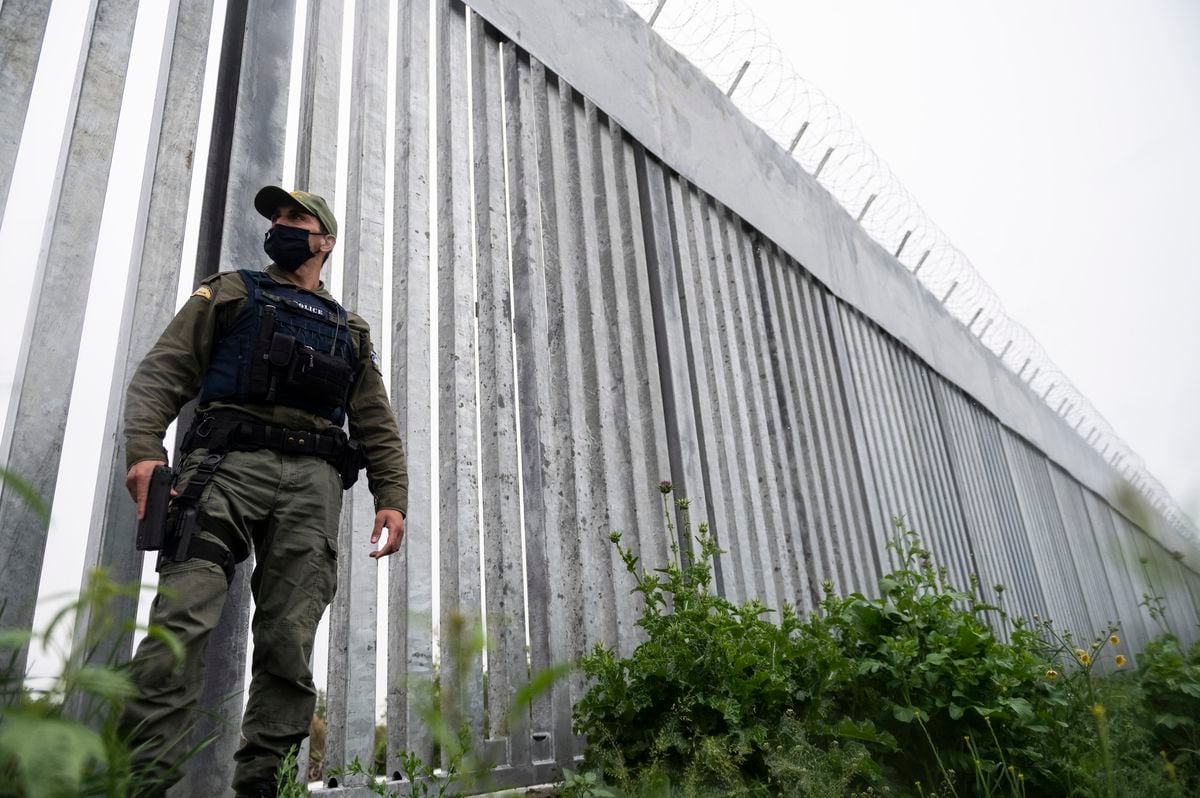The Greek Government has completed the reinforcement of its land border with Turkey in anticipation of a possible wave of Afghan refugees after the Taliban seize power. The Hellenic authorities want to prevent the occurrence of a refugee crisis such as those experienced in 2015, when almost a million refugees - mostly Syrians - entered the country, and in 2020, when the Turkish Executive gave free rein to refugees who were They were in their territory to pressure the European Union to renegotiate the terms and financing of the 2016 anti-immigration agreement.
"Our borders will remain secure and inviolable," said the Minister of Citizen Protection, Mijalis Jrisojoidis, during a visit to the area this Friday.
“The crisis in Afghanistan has created new situations in the geopolitical sphere and, at the same time, new opportunities for migratory flows.
As a European country, we participate in the institutions of the European Union, where a series of decisions are being taken.
But, as a state, we cannot wait passively for its possible impact ”.
More information
The West's responsibility in Afghanistan
Chaos, coups and despair around the Kabul airport: "You have to get there any way you can"
An integrated electronic surveillance system has been installed along the border that marks the river Evros, including new turrets, thermal cameras and a hot air blimp. In addition, after 10 months of work, a new 5-meter-high fence has been completed along 27 kilometers around the town of Feres, in the south of the Greek-Turkish border. It is an area in which the boundary does not exactly coincide with the river and enters both the land of Greece and Turkey. In the same way, the existing fence has been reinforced since 2012 in the north of the border, around the town of Orestiada, where neither the territorial border passes by the river but by land and that had been quite damaged during the refugee crisis last year.
The fence built in 2012 was very controversial, as human rights organizations argued that its result would be to divert the migratory route to the south, through the Aegean Sea, much more dangerous, as it finally happened. The European Union - at the height of financial bailouts and austerity measures - assured that it would not put a euro for its construction and harshly criticized the Greek government for erecting the fence. Instead, after the 2015 refugee crisis, community authorities have endorsed Athens' efforts to fortify its border with Turkey, looking the other way at repeated hot returns or even the use of live ammunition against refugees.
The migration issue has soured relations between Turkey and Greece, although in this case both countries seem ready to cooperate.
Turkish President Recep Tayyip Erdogan and Greek Prime Minister Kyriakos Mitsotakis held a half-hour telephone conversation on Friday in which both agreed that an eventual arrival of Afghan refugees would pose "a serious challenge" for both countries and agreed to demand to the European authorities to help the countries bordering Afghanistan to keep them within their borders.
Join EL PAÍS now to follow all the news and read without limits
Subscribe here
"We must remind our European friends of this fact: Europe, which has become a center of attraction for millions of people, cannot stay out of the refugee problem by fortifying its borders," warned the Turkish leader in an appearance a few hours after the conversation with Mitsotakis: "Turkey has no duty, responsibility or obligation to become the warehouse of Europe's refugees."
In fact, Ankara has also strengthened its border with Iran by sending more military troops and building a concrete wall.
This has caused that, according to sources in the area, the arrival of refugees and migrants who continuously used this mountainous border to access Turkey as a first step before heading towards the territory of the European Union is reduced somewhat.
According to UNHCR data, in 2021, fewer than 5,000 people have arrived irregularly on Greek territory from Turkey, 60% through the Evros river border and the rest through the Aegean Sea. Of them, almost half were Afghans. The Turkish security forces, for their part, have detained 83,000 people in an irregular situation this year (both at the borders and within their territory), of whom just over 35,000 were Afghans. These detainees are sent to processing centers for subsequent deportation.
This week, UNHCR spokesperson Shabia Mantoo warned states that they “have a legal and moral responsibility” to allow fleeing Afghans to “seek safety”, and recalled that international treaties prohibit their return to Afghanistan in case they may suffer consequences for it.
Since the beginning of the year, more than half a million Afghans have been displaced by the conflict between the Taliban and the already overthrown government of the country, although the majority have remained inside Afghanistan, mainly in Kabul.
However, neighboring countries are preparing and, for example, Iran has set up refugee camps in the provinces neighboring Afghanistan where it plans to keep them and prevent them from moving to the rest of the territory.
Follow all the international information on
and
, or in
our weekly newsletter
.

